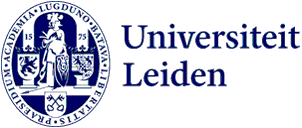
Faculty Opening of the Academic Year: ''Navigating complexities''
The social sciences are vital in navigating complexities, fostering understanding and bridging divides. This was celebrated during the faculty opening of the academic year.
Sarah de Rijcke, dean of the Faculty of Social and Behavioural Sciences, opens with the story of Amira, a 40-year-old woman who came to the Netherlands as a refugee two years ago and who Sarah met over the summer. De Rijcke: “Amira’s story illustrates how social, cultural, psychological, and political factors intertwine - precisely the complexity we, as social and behavioural scientists, strive to understand, teach, and address. Her story underscores the value of our disciplines and the importance of an interdisciplinary approach in our research and education, and it emphasizes how crucial research and education are in providing evidence-based insights to inform policy and public understanding.”

Embodying resilience and working together
The challenges universities are facing are reflected daily in conversations within the faculty. De Rijcke: “We're all aware of the current challenges to universities - looming budget cuts, pressures to reduce international student numbers, and debates over English-language education. These issues, alongside societal polarization, challenge us to keep our universities open, vibrant, and democratic. I feel that Amira's story reminds us of the resilience we need to embody. The social sciences are crucial in navigating these complexities, fostering understanding and bridging divides. Now more than ever, we need to continue to work together to ensure our universities remain inclusive spaces where every student can thrive, and where the next generation of engaged professionals who can navigate these complex societal issues can be trained.” De Rijcke emphasized the importance of good leadership to accomplish this. Investing in leadership is a top priority and important to create a socially and emotionally safe environment in which people feel safe and express themselves. This topic will be discussed more in the coming weeks.

Honours College students reflect
During a live session of Shadowing Sarah, two students that followed the honours course Social Science Labs reflect with De Rijcke on a healthy society on campus and the role of universities during societal transitions. Diana Shalkivska shares her thoughts on the importance of a balanced approach to student well-being. Greta Blengino emphasizes the importance of cultivating trust: “It is great if students are voiced, but there is no trust that the university will listen.” De Rijcke believes Blengino touches a crucial point, and the dialogue ends with an invitation from De Rijcke to follow up the conversation, connecting words with action. The faculty board invites everyone, both students and staff, to hand in suggestions for topics for townhall meetings, in which dialogue and follow-up actions are central. Robin Buijs, our new assessor, says about this initiative: “It is important to speak to people who want to contribute more and to make it possible for everyone to express their opinions. I want to make all the students feel part of the community.”
International collaboration with Chile
Internationalization remains particularly important to the faculty and during the opening special attention was given to a new collaboration with Diego Portales University. We were delighted to have Rossana Castiglioni, dean of Social Sciences and History at Diego Portales University, speak to us virtually in a video that “presents dimensions in which we hope to expand and deepen our collaboration shortly.” De Rijcke and Castiglioni met each other just before the summer break and a match making event will follow in the fall.
New collaboration with Diego Portales University in Chile
Due to the selected cookie settings, we cannot show this video here.
Watch the video on the original website orCasimir Prize for renewal and innovation in education
The Casimir Prize is an appreciation of educational teams that achieve renewal and innovation in education and is named after a true educational innovator. This year, on advice of the jury, the Faculty Board granted two teams the Casimir Prize. Kristiaan van der Heijden, vice dean with portfolio education, handed over the first prize to the team led by Anouk van der Weiden, for developing a training for students to develop critical reading and writing skills. The second prize was won by a team of teachers for implementing R in the curriculum, replacing SPSS. The jury was impressed by the process of implementation, as well as the impact for students, since this transition is in line with developments regarding open science, demands for coding and programming skills. Both winning teams sit within the institute of Psychology.
Our winning teams are:
Team 1: Anouk van der Weiden, Coen Wirtz, Hester Ruigendijk, Welmer Molenmaker, and student assistants Yara Tobé and Susana Filgueiras. With support of Maarten van de Ven, Chantal de Beun, Thijmen Zaalberg, Mieneke van der Salm.
Team 2: Hemmo Smit, Sjoerd Huisman, Juan Claramunt Gonzalez, Elise Dusseldorp, Bunga Pratiwi, David Kühling, Gabriel Castellar Barroso, Max Kalisvaart and Pascal Haazebroek.

The inspiring relationship between arts and science
The faculty opening of the academic year goes together with the opening of a new exhibition with works of artist Xin Xia, who is also a former PhD student of the faculty. Xin Xia highlights the connection between arts and science, something she notices in her own journey in which the arts inspire science and the other way around. Students and staff could walk by the newly opened exhibition, while enjoying the music played by Alina Ju, a talented young violinist who competed in the prestigious national violin competition.
-
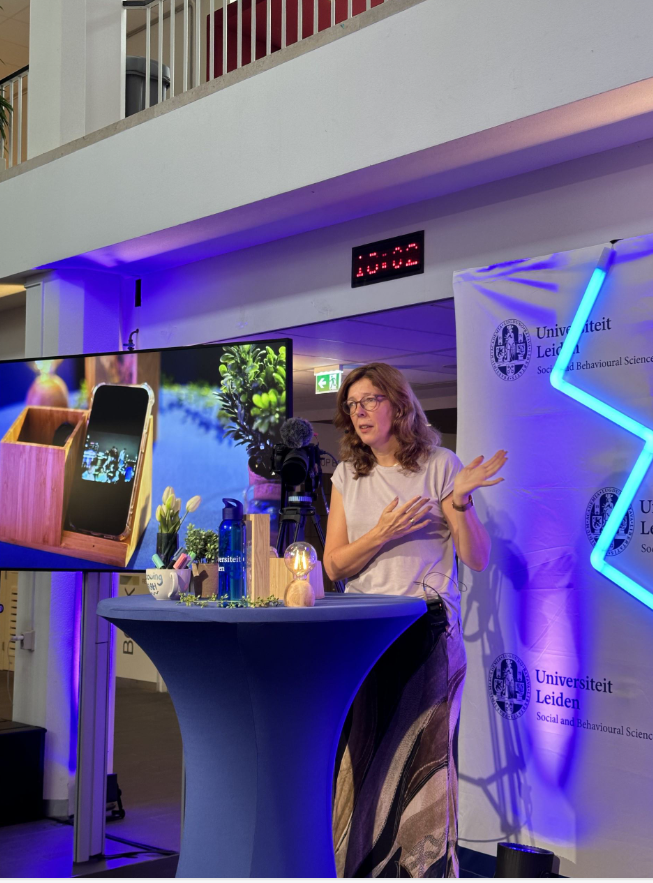
Sarah de Rijcke - Welcome speech -
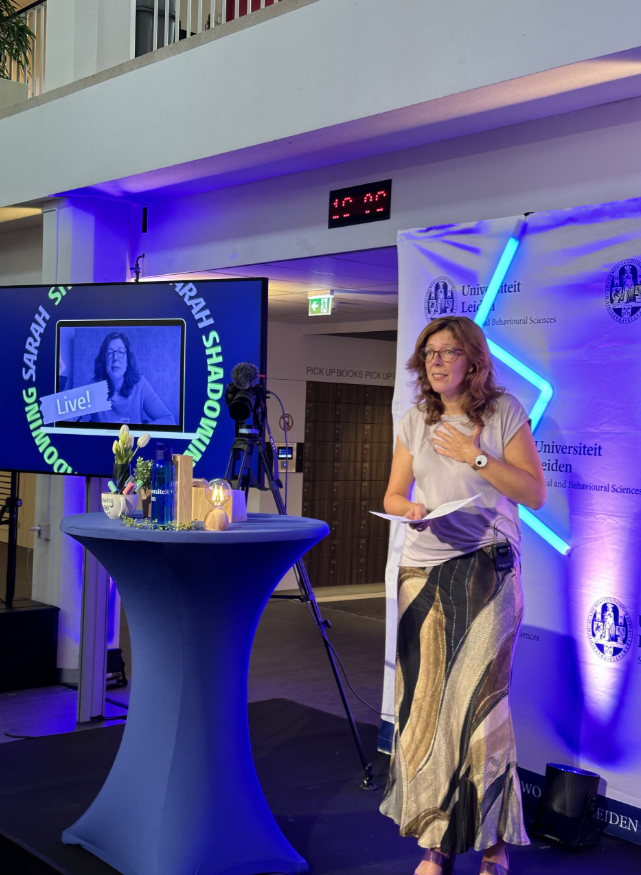
Get to know how the life of a dean looks like - Shadowing Sarah -
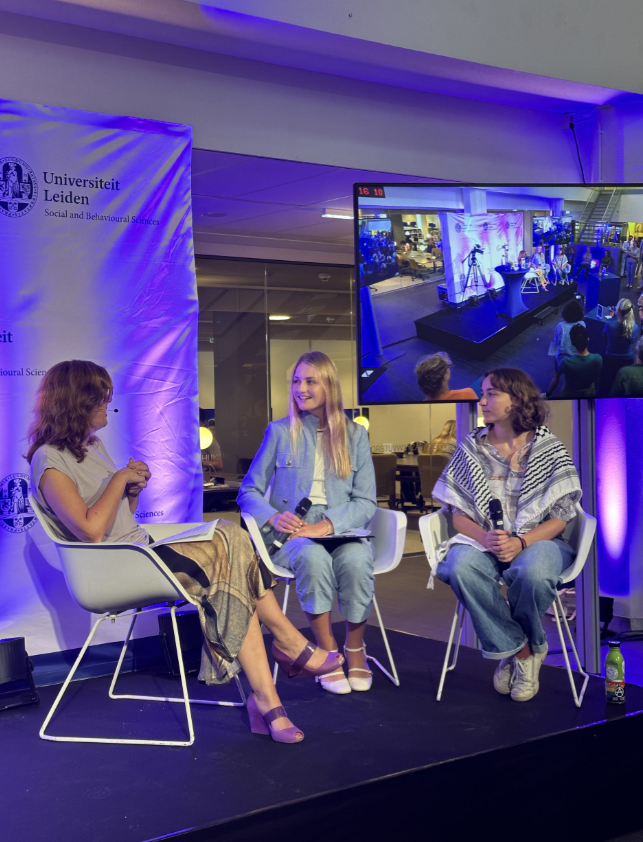
Sarah in conversation with honour students -
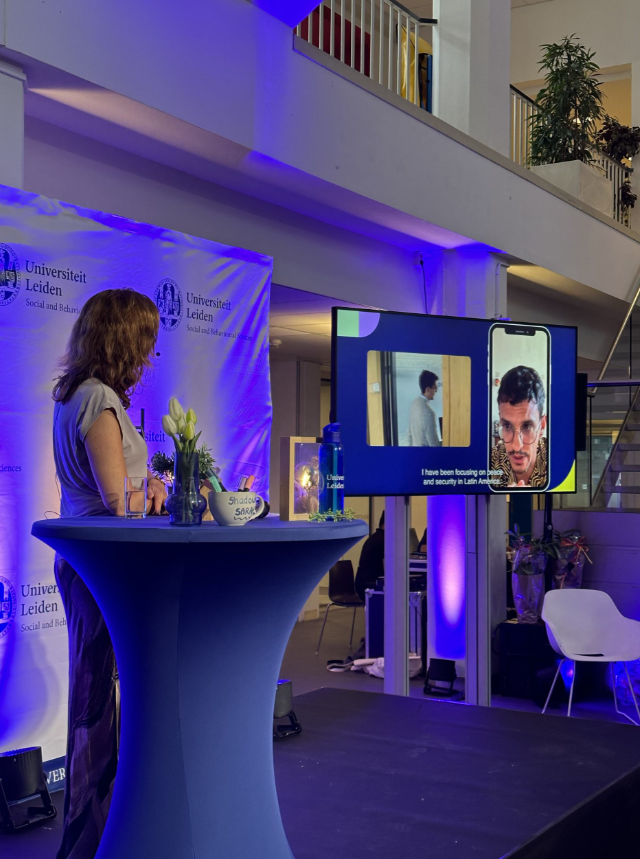
New collaboration in Chile -
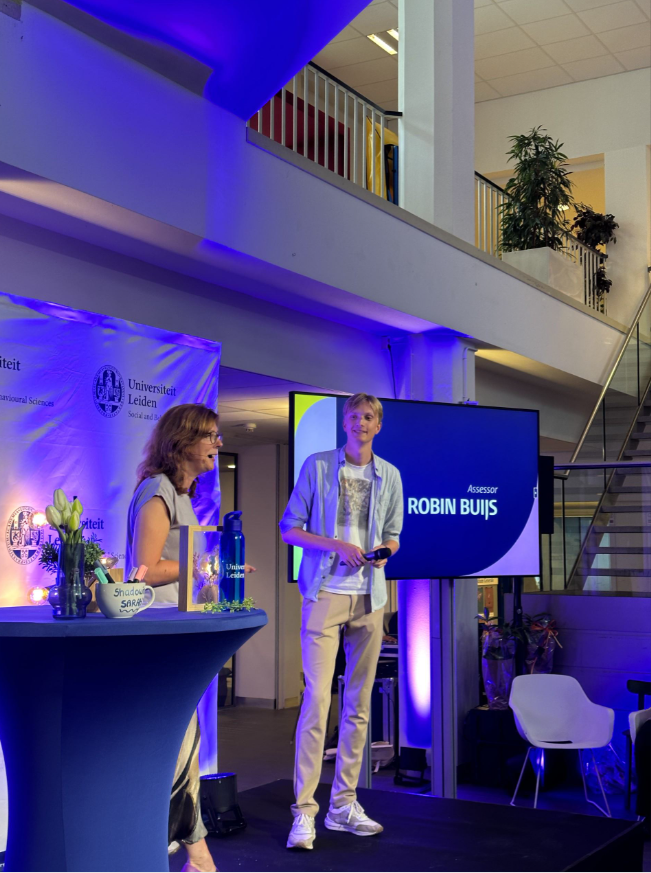
Sarah with assessor Robin -
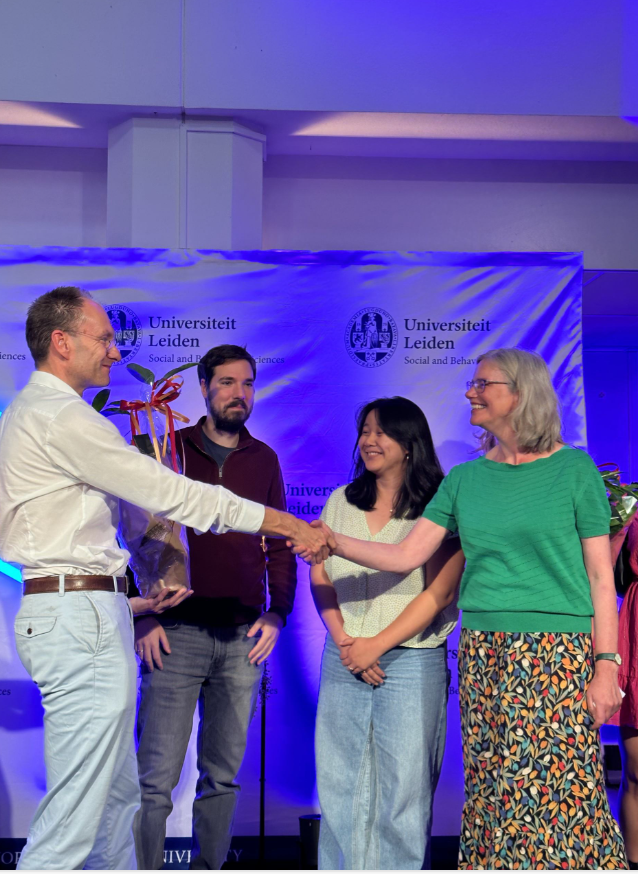
Casimir Prize winners -
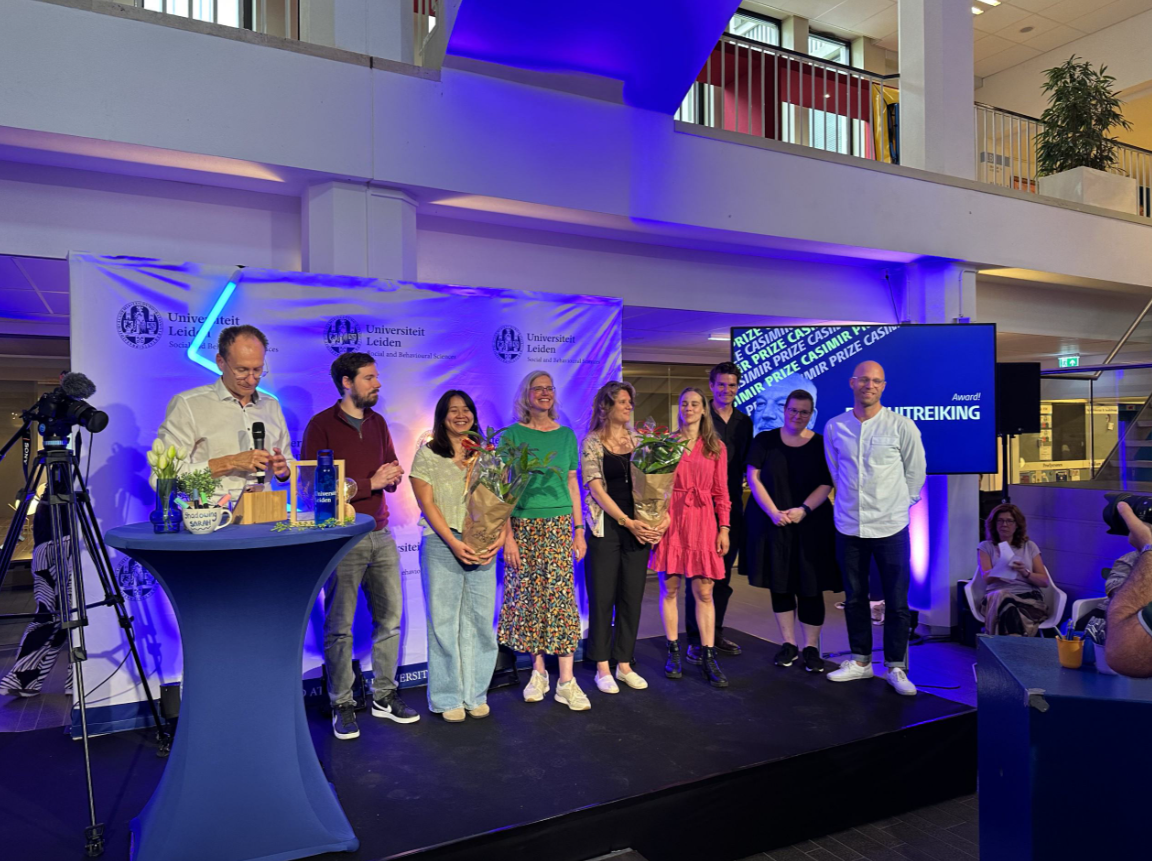
Casimir Prize winners -
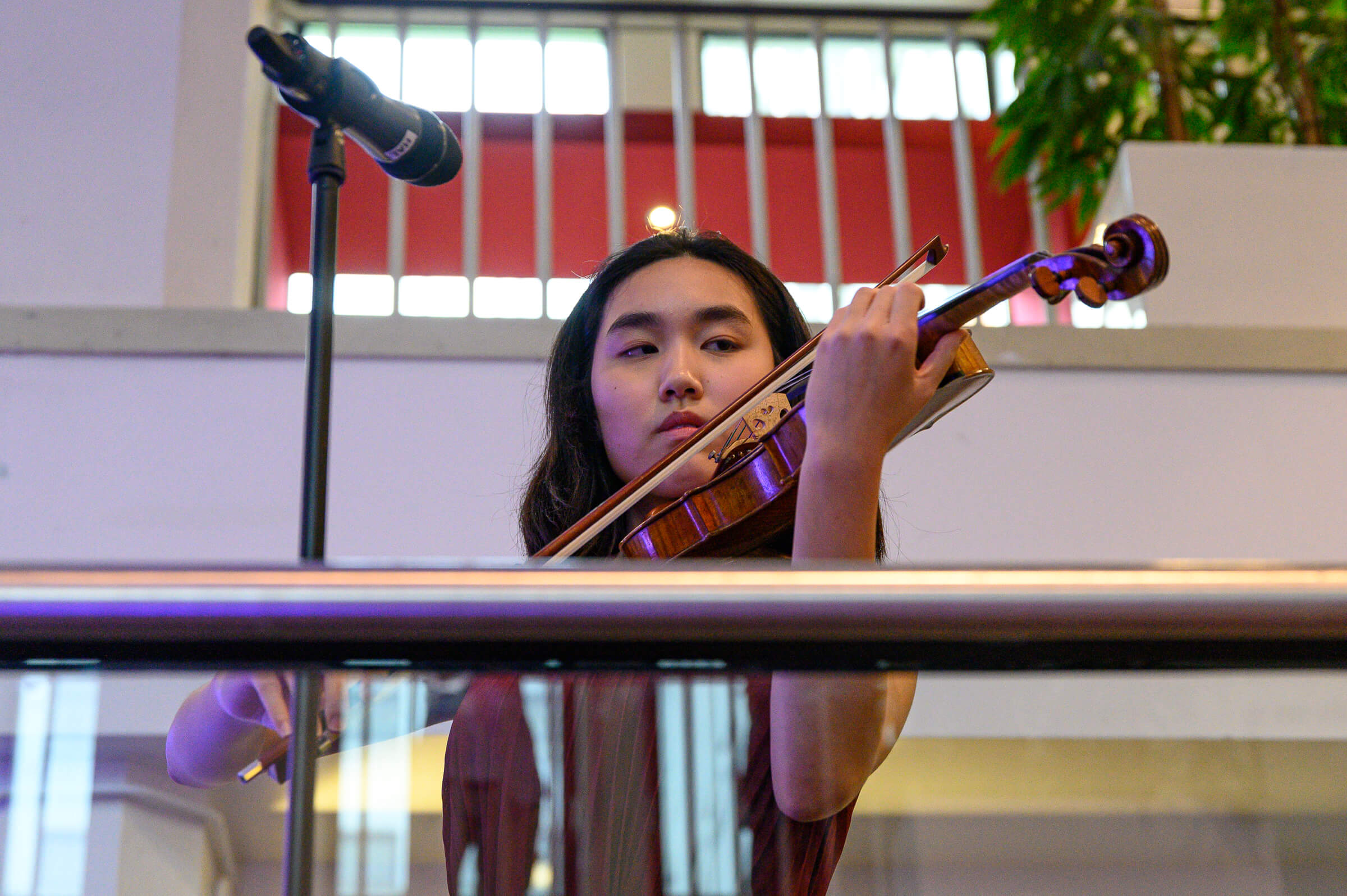
Alina Ju -
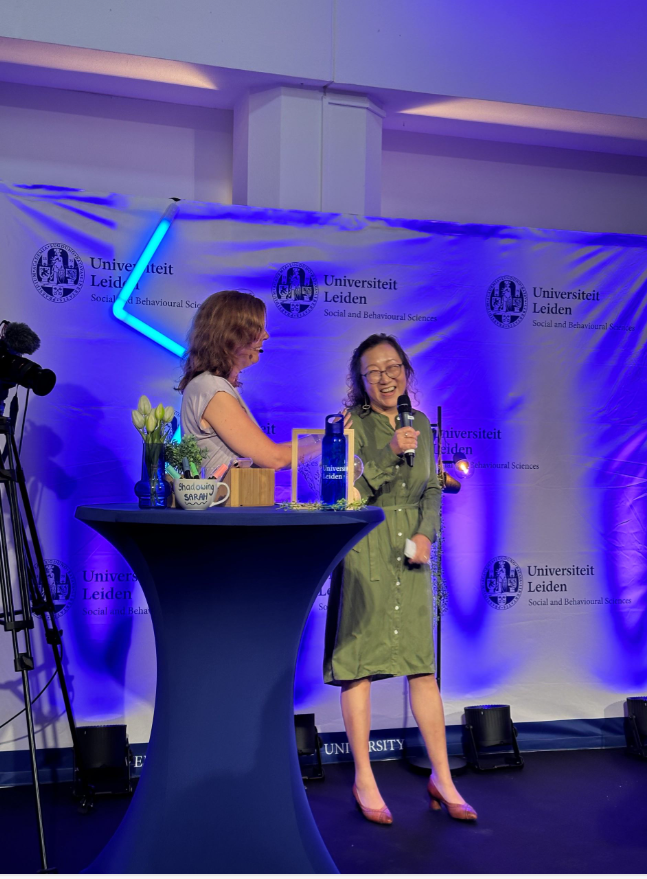
Sarah with artist Xin Xia
